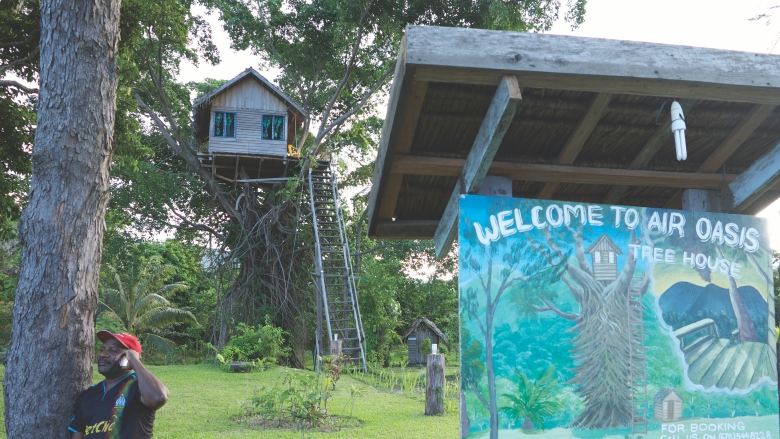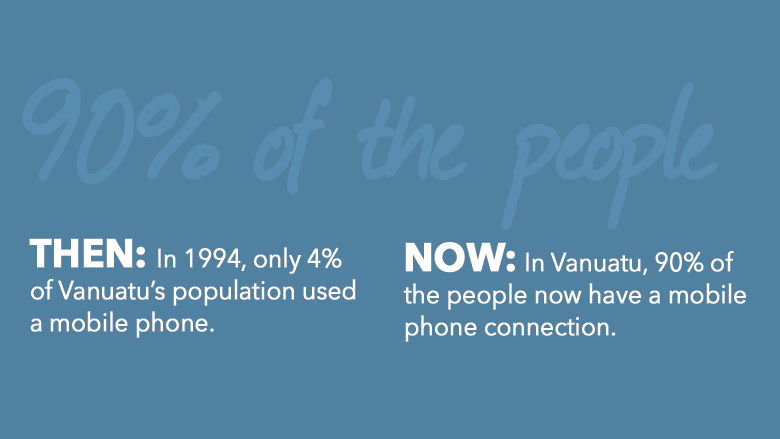My name is Kelson and I was born on Tanna. I am 48 years old. My wife’s name is Joyce and we have two daughters, Lusianne, 18, and Ajay, 12. I started the business nearly 30 years ago when I left school.
Before, there was no tourism here and no accommodation here in my area, the White Sands area. I was the first to start a tourist business; I started with one hut.
In the beginning, I faced a lot of difficulties with my tourism business. I used to walk four kilometers to town and back in order to make phone calls for bookings. With no phones I faced hard times in my business.
Since 2008, we have mobile phones here. And we were lucky. Now everywhere I go—in the jungle, wherever I go in the car—I have the phone with me. Now, we just stay in our rooms, or outside, or even in the shower…and the mobile phone rings…I grab it…answer the call.
Once we had this technology, I felt like I had a new baby, born to my family. I was happy. The phone is like my friend. It changes a lot. I can take bookings right from my phone—from Germany, from France, from Australia.
For my children, the technology and the knowledge are increasing. In my youth, I didn’t even know what a mobile phone was—and now, I have the mobile phone, but I don’t know some of the things inside. But my children know how to do everything—like how to go into the Internet. They know everything you can do with mobile phones. But I just know how to answer the call and call out.
Hopes for the Future
My hope for the future is to upgrade my business. I am thinking to have Internet here if it’s possible. We still don’t have access to the Internet; we have to go to town to check our bookings. It would be easier just to stay in our rooms or bungalows and get the bookings directly.
So I will have my own office in the future and maybe I will build some bungalows with the private facilities inside. And I have a big plan for the treehouses—to build toilets and showers inside the treehouses. That’s the future. And I hope to get a car, a good car, a comfortable car for this business and expand it more as my family is also expanding.
I want to be an example to other people so everyone can build a better life. Even with the phones we now have an easier life. Now everyone here, people who haven’t got a job, someone who is a gardener in the bush, everyone has phones!



